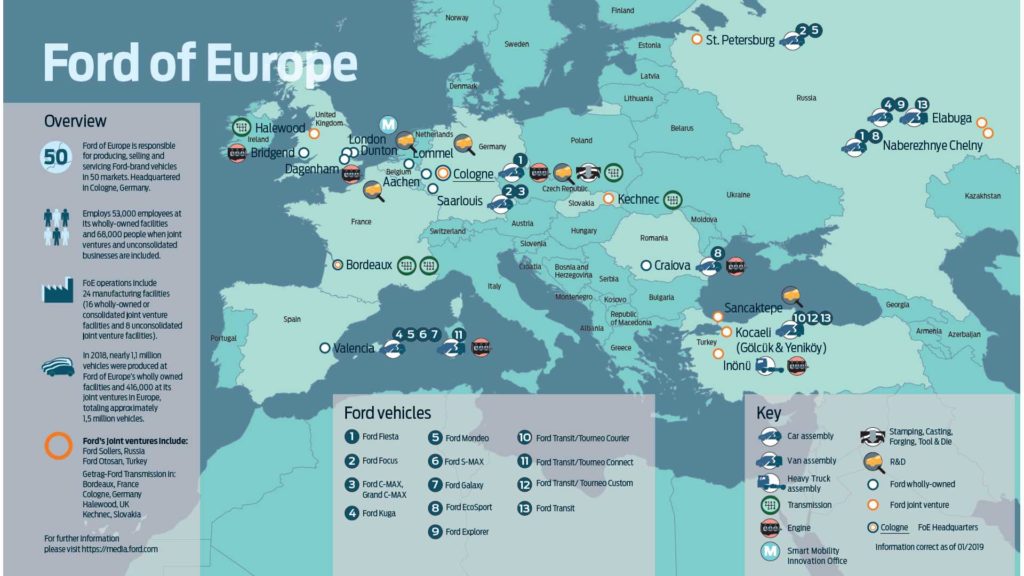After announcing that it intends to invest at least $22 billion in EVs by 2025, Ford began a huge restructuring plan to make its operations in Europe not only be more profitable, but also supportive in regards to electric vehicles. To date, it has shut down five plants and reduced its workforce by 20%, but they aren’t stopping there.
Ford is now reportedly looking to repurpose some of its existing plants to refocus on electric and commercial vehicles. While some may argue this will reduce Ford’s European vehicle production, British engineer, and head of Ford of Europe, Stuart Rowley told Automotive News Europe: “The restructuring program was very significant. But the next phase of the transformation, however, is going to require further action that could mean rescaling or repurposing facilities or other changes. We will choose segments where there is consumer demand, growth and where we can be profitable.”
While Ford will continue to concentrate on building cars, it is possible that with the accelerated adoption of electric mobility, they will redirect some of its focus onto building more components for EVs, as Rowley noted: “As we transition, there are going to be fewer powertrain plants, equally, we may invest in electric components.”
Ford has already pledged to invest $1-billion into the retooling of its Cologne plant in order to support the production of a new EV that will sit on the Volkswagen Group’s MEB platform. The Cologne plant is expected to be ready for production in 2023, but Rowley insinuated this is only the beginning: “Cologne won’t be the last plant to electrify. We will make more announcements as we move forward and start to make investments.”
Ford’s engine plant in Dagenham, UK will remain untouched for the time being: “Dagenham is still a very important part of our future commercial vehicle business. The core of our business in Europe and our profitability is commercial vehicles.”
Ford is aiming for 100% of its passenger car sales, and two-thirds of its commercial vehicle sales, to be all-electric by 2030.

